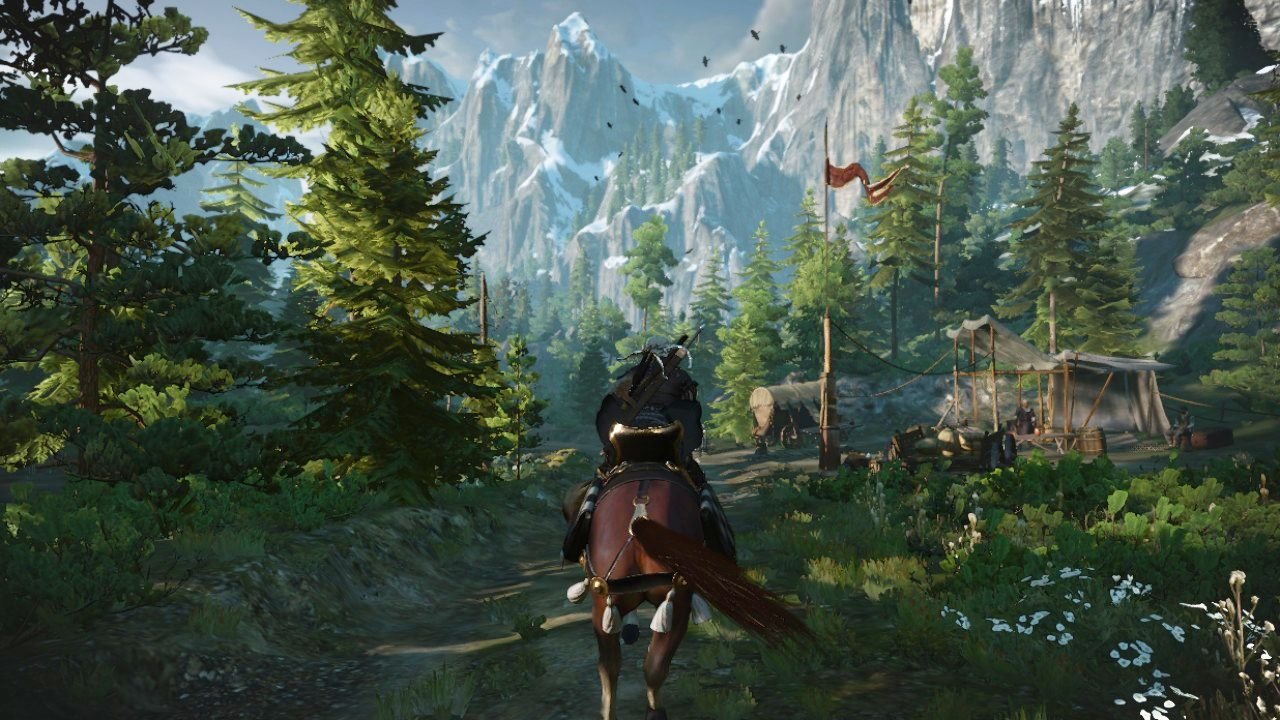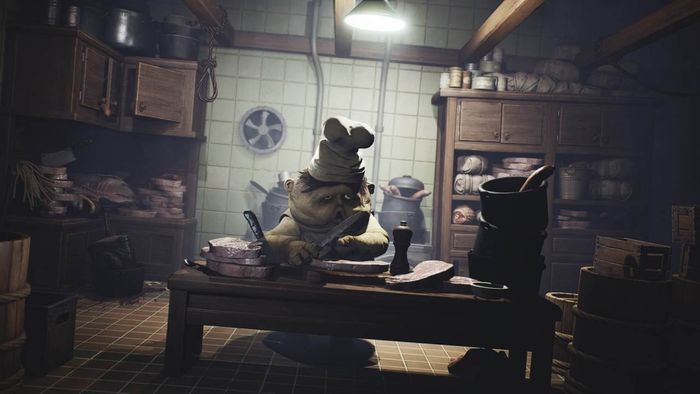Some of the best films of all time are those whose different strengths all work in concert to create a unified, engrossing whole. The Shining, The Social Network, and Jaws are all excellent examples of films made up of strong individual parts complementing each other to form a fantastic work of art. That is absolutely true of God of War – its musical score elevates story moments, which flow seamlessly into fantastic action gameplay, which facilitates exploration and puzzles that reward you with a deeper understanding of its characters and its expansive and beautiful world.
God of War is a masterful composition of exceptional interlocking parts, deliberate in its design and its foreshadowing, which pays off in unexpected ways in both the gameplay and story.Set in a new, Norse mythology-inspired world and starring a familiar but thoughtfully reimagined character.
God of War works from minute one thanks to the simplicity of its plot. Kratos and Atreus – who start as, at best, acquaintances – begin their journey having just gone through the loss of Kratos’ wife, whom Atreus bonded with much more than his father. The two set out to the tallest point in all the realms to carry out her final wishes.
The Art of War
And there are battles aplenty. Though Kratos only kills for survival now, he still does so with a flair for brutality. The stun-kill animations can be especially gory and literally bone-crunching affairs. (Though, because there’s only one per enemy type, they become somewhat repetitive to watch.) While God of War is altogether more emotionally complex and layered, its excellent combat undoubtedly carries forward the blood-soaked traditions of the series.

Finding the right combination of slicing, throwing, assistance from Atreus, and parrying with Kratos’ retractable shield turns each battle into a bloody ballet of timing – and that’s before you begin unlocking special attacks, like a beam of ice shooting out from the axe or a Patronus-esque wolf Atreus can summon for battle.
Though I quickly found my favorites, certain scenarios required me to vary up my abilities by mixing in enemies with immunities and weaknesses
I skipped out on some options in the early game, because options are limited by what you can afford to unlock with XP, but by the latter half I had more than enough to unlock pretty much everything I wanted in time for the most brutal battles. I felt encouraged to experiment.
A big variable in combat is Kratos and Atreus’ armor. Chest, wrist, and waist pieces, as well as some tweaks to the axe, can alter a number of Kratos’ stats, from strength and defense to runic magic and attack cooldown rates, and those can have a significant effect on the way you fight. I stayed with my tried-and-true animal hide chest guards rather than full breastplates, sacrificing defense over strength, but would take on new equipment – or outfit them with my amassed slottable runes – to imbue my gear with defenses against certain enemies or to accentuate abilities like my axe’s frost power. I also may have made a few clothing choices based on look because, even though Kratos is no fashion icon, with such intricate character detail I wanted him to stay true to my vision of this embattled man. (And, largely, my Kratos would never wear bulky chest plates.)
A Whole New World
God of War’s initially linear world opens up a bit after the first few hours, and it encourages exploration through its many rewards and collectibles for completing optional puzzles and fights. But you can occasionally stumble into the path of a much more difficult opponent, clearly denoted by the purple color of their health bar, and they can often take you down in one or two hits. Running into these situations occasionally felt like intruding on someone or something else’s territory, and I needed to be prepared. If I felt hungry for a challenge, God of War never let me down.
There’s plenty of freedom, although the map never becomes truly “open world” in the way that games like The Legend of Zelda: Breath of the Wild or Horizon Zero Dawn are; instead, it’s an interconnected series of diverse locations, many of which are gated behind certain story moments and collectible milestones until the very end. God of War’s contained nature shepherds you through certain locations with its quest chain, which occasionally leans on the cliche of a solution Kratos thought would work turning out to be missing one key component you then need to then go scour the land for.
The Beauty’s in the Details
I have audibly said “wow” and sighed at the beauty of God of War. The texture of grassy hills in the distance feel real, light dances dazzlingly off of shinier surfaces, and every gnarled monster I have fought conveys such a sense of decay as to instill terror in me. Even the sky looks nearly photo-realistic. And while the beautiful landscapes captivated me, the small details on Kratos and Atreus stunned me. The fur and leather of their outfits move so naturally, and are so finely detailed that they look nearly genuine. I would find myself trying on new pieces of armor just to admire how Kratos’ outfits behaved.
All of this beauty comes at a cost, however, and that means God of War runs at or around 30 frames per second instead of the 60 frames that makes action games feel so much smoother. That said, the world and its inhabitants largely ran well for me, outside of the occasional framerate dip when swinging the camera over complex scenery or around in the midst of a cramped battle, or while in the “Favor Resolution” Pro mode, which maintains the higher resolution at the expense of dropping some frames here and there. The “Favor Performance” mode visibly ups the framerate, but not to 60 fps in my time with it. But the occasional issues in my playthrough never hindered my progress or noticeably took me out of the experience on either the regular PS4 or the PS4 Pro.
Similar games
The Legend of Zelda – Breath of the Wild Switch (EU)
The Witcher 3 Wild Hunt PC
Final Thoughts









